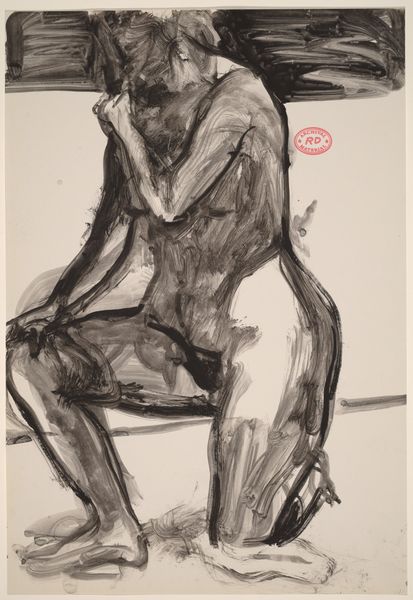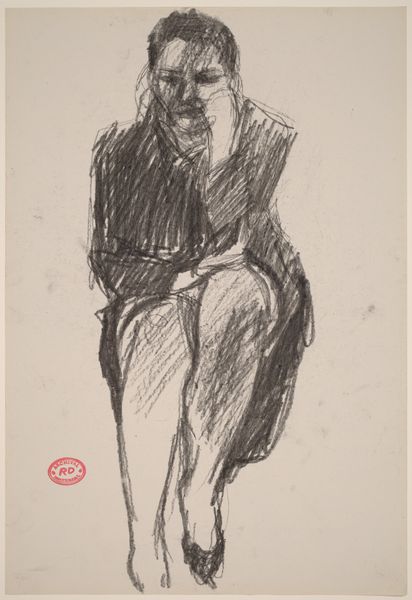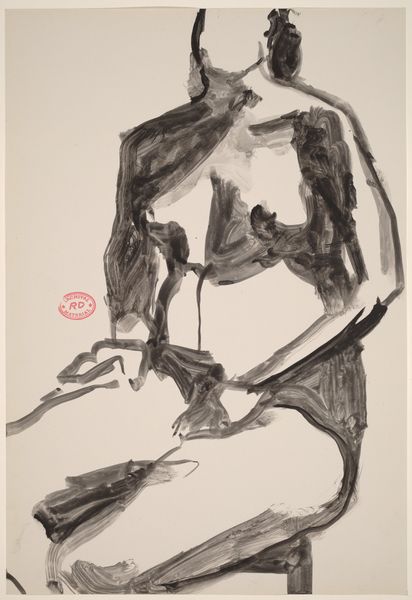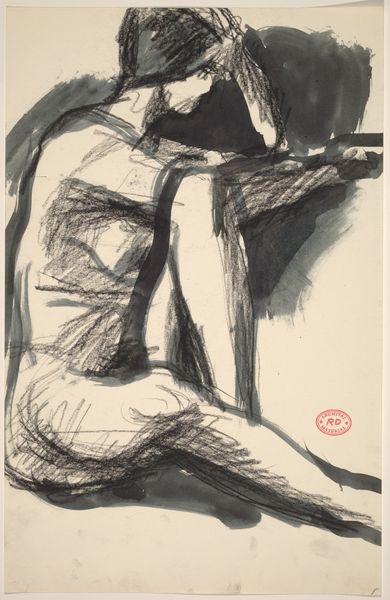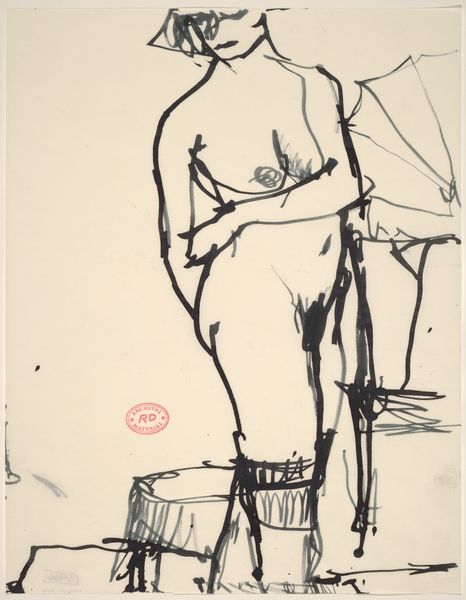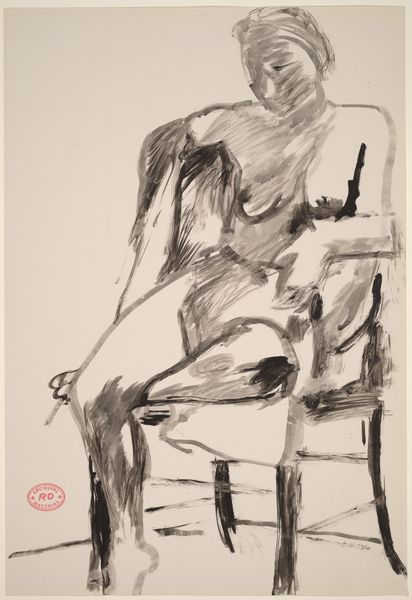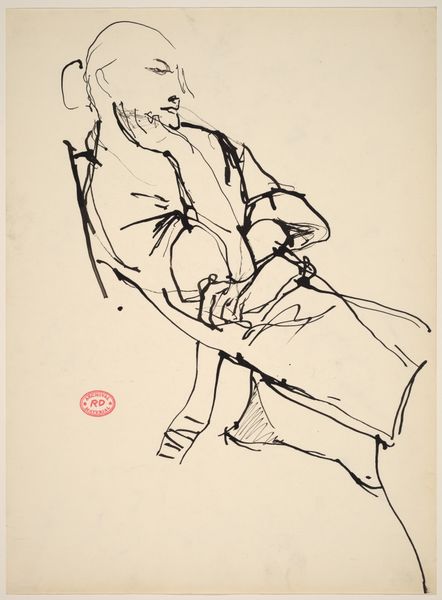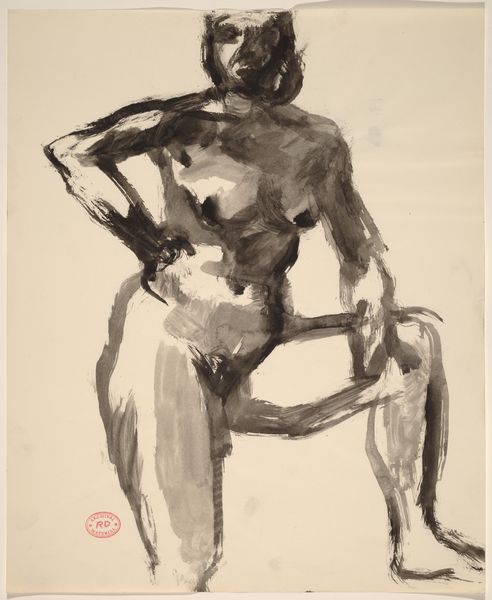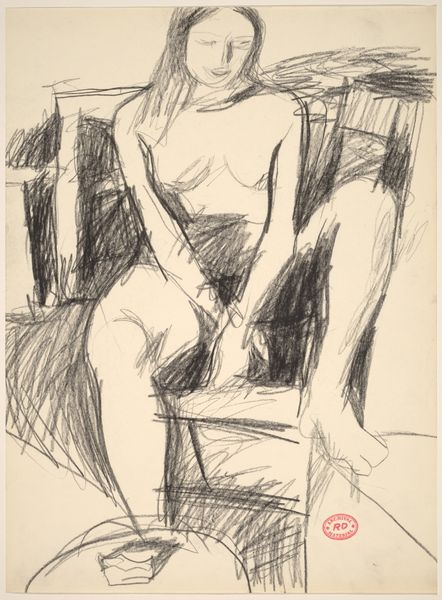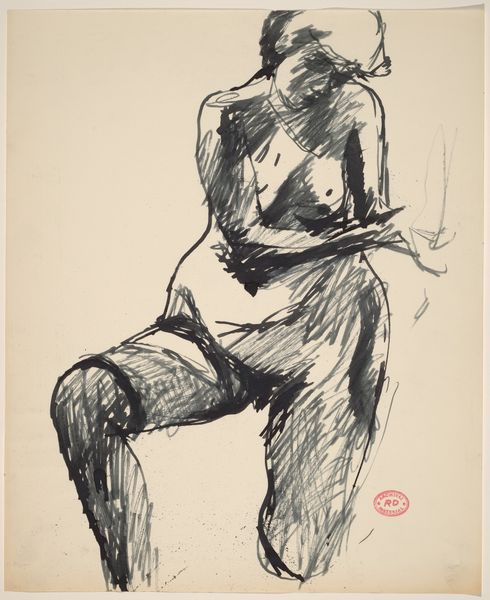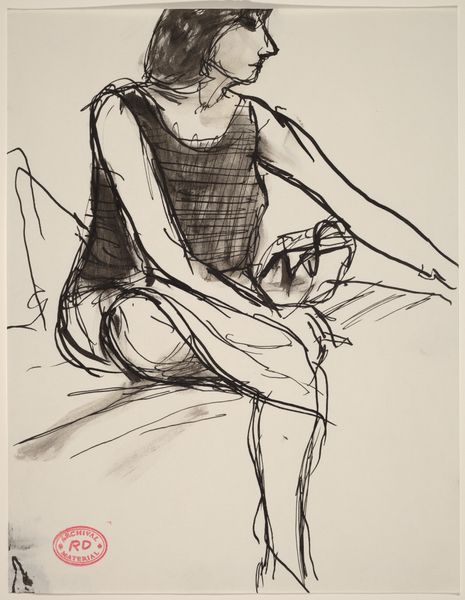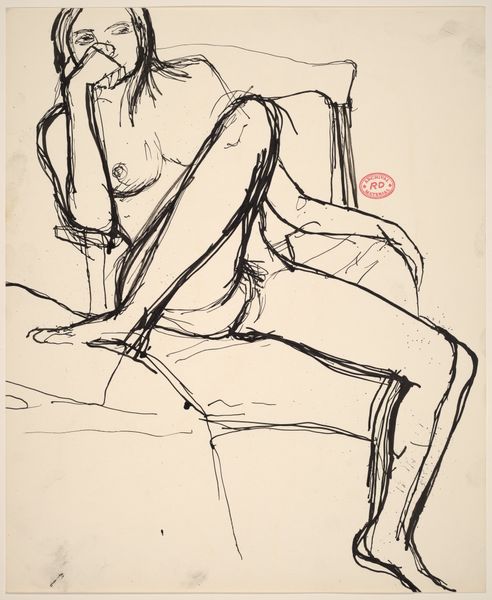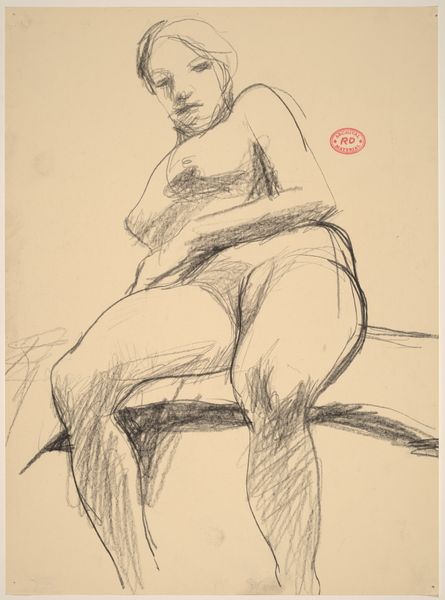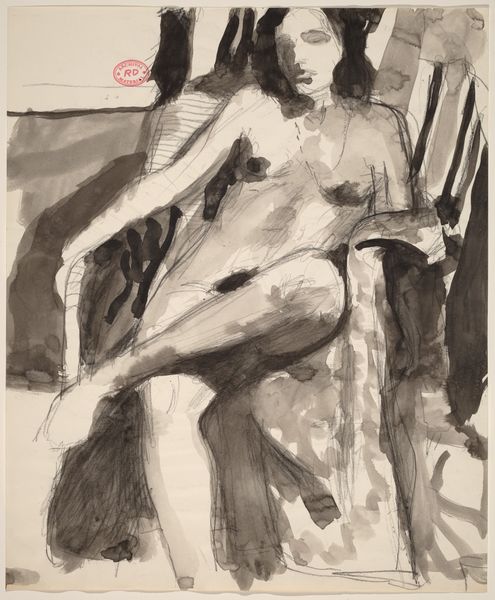![Untitled [seated nude turned and resting against the arm of her chair] by Richard Diebenkorn](/_next/image?url=https%3A%2F%2Fd2w8kbdekdi1gv.cloudfront.net%2FeyJidWNrZXQiOiAiYXJ0ZXJhLWltYWdlcy1idWNrZXQiLCAia2V5IjogImFydHdvcmtzLzE0NWMxZmFmLWFiNDAtNGE0NS1iYjcyLWU4NGU2MGUxNmM5ZS8xNDVjMWZhZi1hYjQwLTRhNDUtYmI3Mi1lODRlNjBlMTZjOWVfZnVsbC5qcGciLCAiZWRpdHMiOiB7InJlc2l6ZSI6IHsid2lkdGgiOiAxOTIwLCAiaGVpZ2h0IjogMTkyMCwgImZpdCI6ICJpbnNpZGUifX19&w=3840&q=75)
Untitled [seated nude turned and resting against the arm of her chair] 1955 - 1967
0:00
0:00
drawing, ink
#
drawing
#
charcoal drawing
#
figuration
#
bay-area-figurative-movement
#
ink
#
pencil drawing
#
portrait drawing
#
academic-art
Dimensions: overall: 40.6 x 27.9 cm (16 x 11 in.)
Copyright: National Gallery of Art: CC0 1.0
Curator: The piece before us is an ink and charcoal drawing by Richard Diebenkorn, likely executed sometime between 1955 and 1967. The work is an untitled study of a seated nude woman resting against the arm of her chair. Editor: It feels...restless, doesn't it? Like the woman in the drawing is caught between thoughts. The lines are so immediate, so raw; it's like looking at a moment suspended in charcoal dust. I half expect her to shift position any second. Curator: Indeed. Diebenkorn's rapid strokes delineate the form with a remarkable economy of means. Observe how the density of the charcoal around the chair anchors the composition, creating a visual counterpoint to the figure's more gestural rendering. There is an interesting tension between the implied volume and the flatness of the picture plane. Editor: Flatness, sure, but even with that stark palette and the academic approach, I feel the weight of her hand propping up her head; I see the slight slump in her shoulders. It’s incredibly human, and vulnerable. Almost too exposed, maybe. Curator: The exposed quality might derive from the drawing's formal openness. Diebenkorn employs hatching and cross-hatching to suggest form, leaving large areas of the paper untouched, which encourages the viewer to actively participate in the visual construction of the image. The strategic use of negative space defines the contours and contributes to the overall dynamic energy. Editor: It's that "strategic" energy that gets me. He captures something essential about solitude, that pregnant pause before action. Maybe he was in a state of restless pondering himself while making it? It feels very… existential. Curator: To interpret the work existentially aligns with its formal properties. The unfinished quality mirrors the open-ended nature of existential thought. Diebenkorn doesn't give us a polished conclusion, but rather a dynamic proposition. Editor: Exactly. A proposition suspended in ink. And, as a friend might say, an "academic-art" proposition at that. So where does that leave us? Curator: Ultimately, Diebenkorn offers a fascinating dialogue between classical figuration and modernist abstraction through deceptively simple lines, making a powerful artistic statement. Editor: Yes. Maybe that is the reason this picture resonates even after decades. That sense of fleeting, unfinished honesty makes it strangely, perpetually modern.
Comments
No comments
Be the first to comment and join the conversation on the ultimate creative platform.
